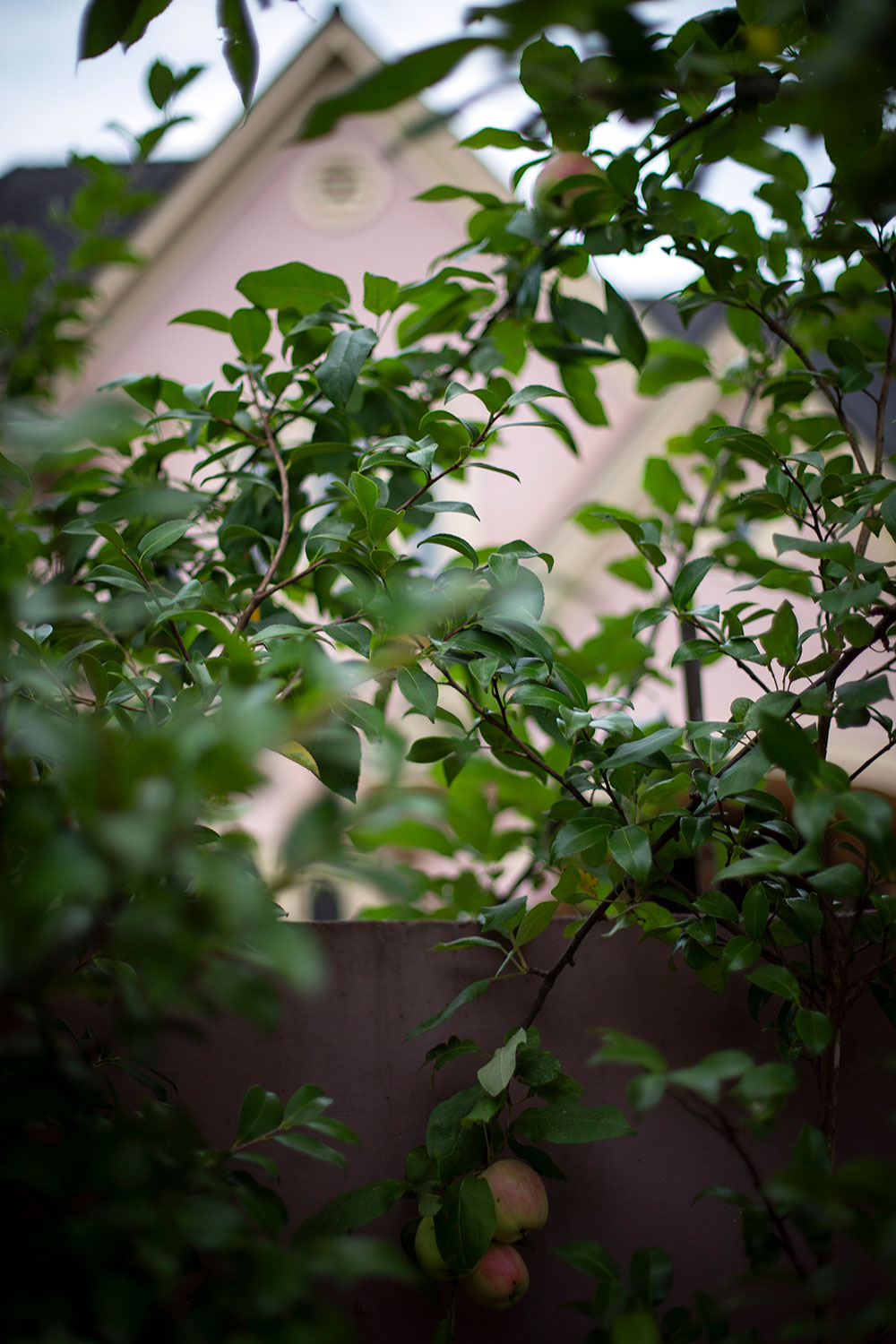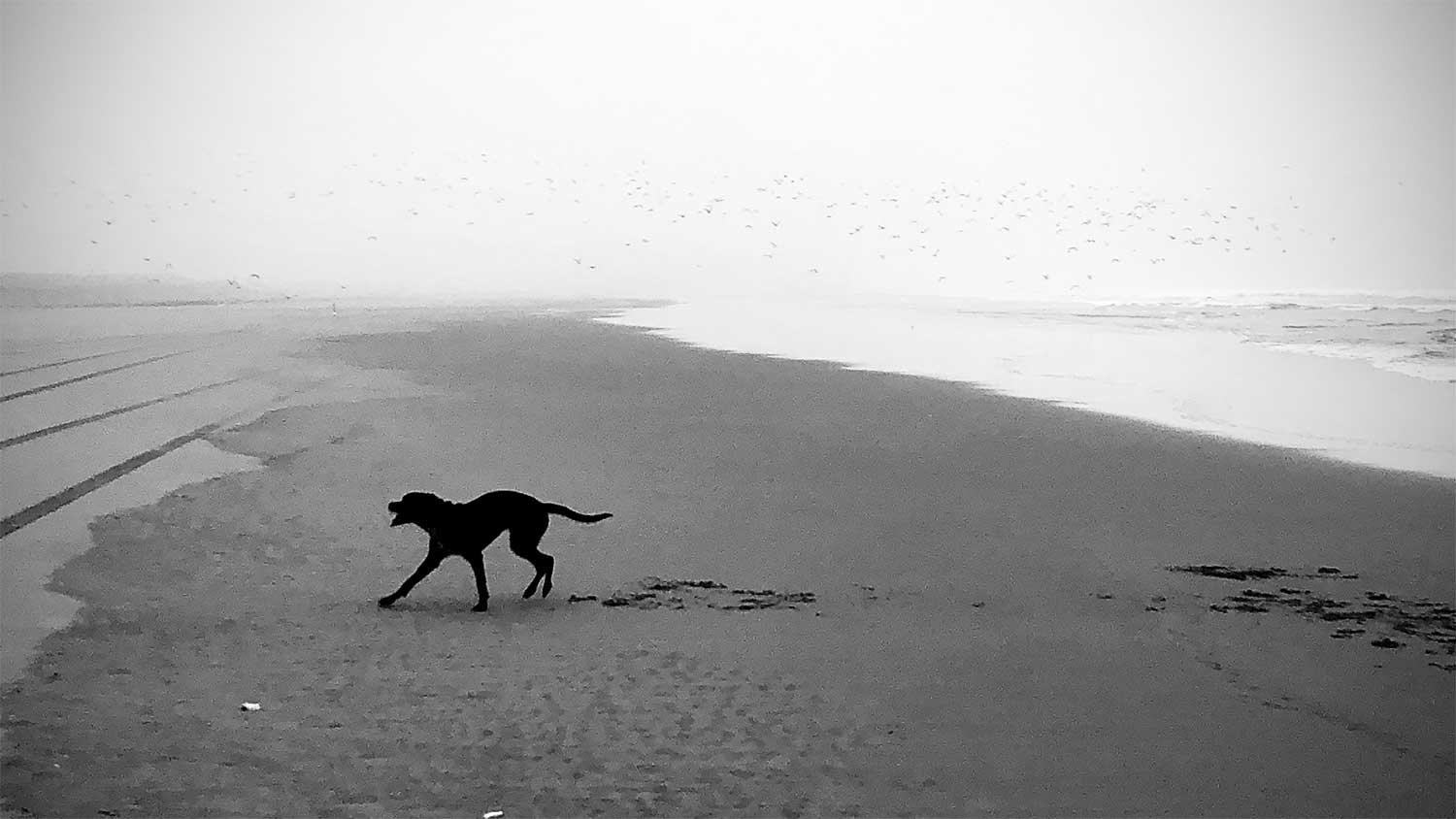August 2022
5.viii.2022
5 August 2022, around 6.05.
‘All genuine thought and art is to a certain extent an attempt to put big heads on small people: so it is no wonder the attempt does not always come off.’ —Schopenhauer
momentary
7 August 2022, around 17.22.

peripatetic
19 August 2022, around 9.12.


From the morning walk.
hey neighbor
28 August 2022, around 14.38.

The new neighbor lives openly, loudly, her life spilling across the narrow public sphere of the yard between buildings. Branches and brambles provide an equivocal visual screen, but sound passes through unmuffled. Her conversations are eager, enthusiastic, kindly, echoing out the open windows of the barely furnished ground floor apartment next door, which she has not quite finished (or, it would seem, even truly started) moving into. She talks to her computer, she talks to a regular roster of visitors, she talks to her dog, who in response spends much of the early evening barking at ghosts. Her words, and more especially her carrying, bracing tone, convey a sense of her overall, seemingly indiscriminate niceness and human caring (that lovingkindness so out of the ordinary it runs together into one word), which prevents the stream of chatter from becoming truly irritating. It is, however, another reason to long for fall and then winter – and the closing of windows.
game trails and cow paths
31 August 2022, around 5.21.

Everything I set down has a source
in prior song or the written record.
Some poets don’t want to read first;
some of us want to give the stories we know
a longer life […]
Shortly after becoming acquainted with the dog, then a black puppy of moderate size and tender disposition, we took it upon ourselves to take her to the ocean. There was, at that venue, a confabulation of poets, gathered together by our neighborhood bookstore to celebrate the mists and mellow fruitfulness of the season, to get out of town, but mostly just to drink beyond wisdom, chatter awkwardly, and occasionally vex each other with readings of other poets’ verses. We were at the periphery of this gathering, but being unsociable were mostly just there for the dog.
In the morning, we took the dog out to the nearest beach. It was October and somewhat chilly, and the fog cozied up to the dunes to provide atmosphere: ‘There is a rapture on the lonely shore’, &c., &c. Society did intrude, but the gulls easily outnumbered the people, who were generally to be met on the path to and from the beach, rather than on the beach itself. We let the dog off the leash, allowing her to wallow in the brine, the birds, and her unfathomable emotions. Of course then we encountered the poet.
One assumes it was a poet – familiar but not known, androgyne, dour, of doleful mien and wasted visage, dressed in black for a morning’s wander. The dog raced up, danced a circuit around the poet in an ecstasy of greeting. The poet was not amused; the silent, unfine frenzy of a rolling eye conveying that it wanted simply this, an unphysical encounter with a wet dog at the beach on an autumn morning, to ensure the sumptuous destitution of the day. We clipped the lead on the dog and led her away. Some poets must be met on their own terms or not at all.

The anecdote prefacing this plaint, if it does not positively illuminate what follows, will, I hope, at least not render it more obscure. It was simply something that sprang to mind while reading. In Alan Loney’s Not Reading Herakleitos, the author delivers on his promise: he does not read Herakleitos. He reads more or less around the relics of Herakleitos in English, creating a sort of (possibly) Herakleitos-shaped void where reading could perhaps be done, were it not for the difficulties of not having the original, the actual … what? Manuscript? Papyrus? Parchment? Wax tablets? Herakleitos himself at hand to answer questions? Collapse the centuries and make dust to speak that you might hear the echoes of shades. You would probably need an interpreter. 1
Part of the textual tension that Loney triple-underscores, highlights, and metaphorically marks manicules in the margins about is the trouble of quotation: the non-books (or what you will) of poor Herakleitos are (lost) in the dubious dustbins of history, and the poorer reader must make do with quotations and paraphrases and half-remembered anecdotes from possibly the poorest scribblers of several (remote) centuries. Lest one be tempted to be content (or grateful or awed) with even these lees from the past’s symposium, do not forget: ‘the very notion of “quotation” is as slippery a process as is the material one may wish to quote – it’s not that no translation or transcription can be trusted, but rather that no translation or transcription should be trusted’ (p. 64) – but trusted to do what, precisely? 2 What do you want, sir, besides something else? To set the world aflame?
If one were an indulgent reader, one would say that the book is a clever, thoughtful meditation on the nature of meaning, of writing, of poetry, of the word, as well as on the difficulties of translation, of understanding, of sense-making in all its diverse significations. It considers a wide range of (mostly Western) sources, 3 and if it is sometimes out of date, well, it is not, as the author seems almost tetchy about, a work of scholarship. 4 Perhaps that is why I have not been an indulgent reader: it is a text dissatisfied with itself, arrogant but uncertain. In pointing out the problems with other sources, it draws attention to its own limitations, while attempting to be … erudite? writerly? It is not wrong, I would say, because it makes (or hedges) its claims in feeling, in uncertainty (so often in so short a span that the ‘sincerity’ of the move becomes friable, a fribble); for example (p. 15, emphasis, punctuation, &c. original; link added for clarity):
a bibliographer or textual critic might regard the ‘philological problematic’ to be the first order of business, but Fink wants to move directly to the ‘matter for thought’ for Herakleitos which he posits to be somewhere away from the language, even tho he says the language itself is problematic, and even tho his own readings are based on the language of the text as a given – this insistence is of course deeply Heideggerian also – but if the ‘meaning’ of Herakleitos is to be found within the text, then the philological problems need to be addressed, if not sorted out, beforehand, should they not
There is nothing intrinsically wrong (or necessarily wrong-headed) about this, though it is perhaps punching above his weight for a reader who won’t be bothered to bench-press his Pindar. 5 As a blog post (or series of blog posts), it would be a model of the (long) form: so many parts that wail and gnash their gums in the static wilderness of a slim codex would be nurtured (given teeth) by the affordances of hypertext and the mutability of the screen. But as a book? No. It is not, I think, very successful as a book.
- And why, too, should there be only one meaning? One of the things I particularly liked about Kahn’s edition was its call for multiplicities of meaning, for dwelling in possibility and ambiguity. It is sometimes hard to remind a poet that authorial intention is not perhaps the best measure for a text.[↩]
- And how long would papyrus fragments last, do you suppose, if every reader consulted them ad libitum? Ah, but a digital version … but does not this, too, create the same (or similar) problems of authenticity?[↩]
- It has a very Pound tralalalansating Chinese spirit to it.[↩]
- At times Loney seems to take it personally that he does not read Latin or (German?), as though these were deficiencies that could not be remedied if he would but choose to put in the time to do so. There are only so many hours in a day, &c., but there is still, after all, a choice, and one has no one but oneself (and circumstance, &c.) to blame. The grapes, Reynard, are ripe.[↩]
- Caliban’s rage, &c.[↩]
